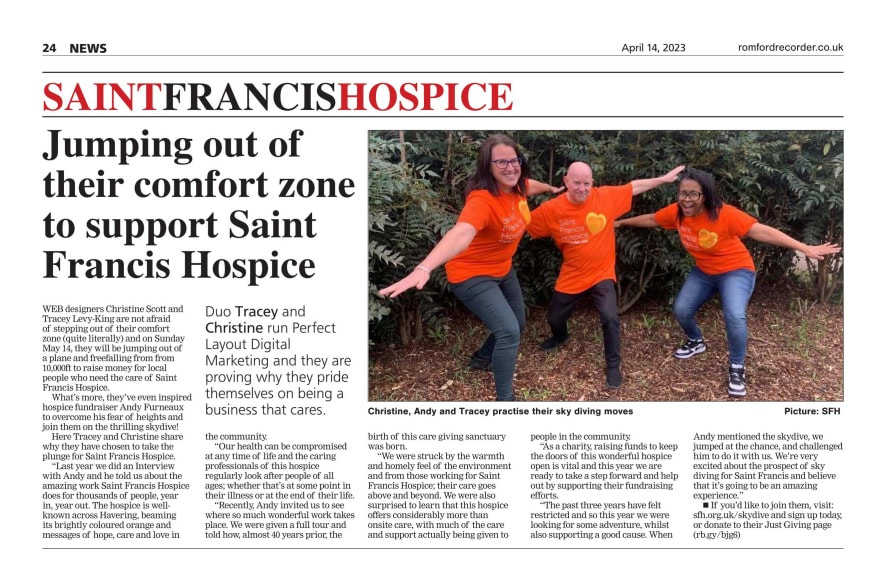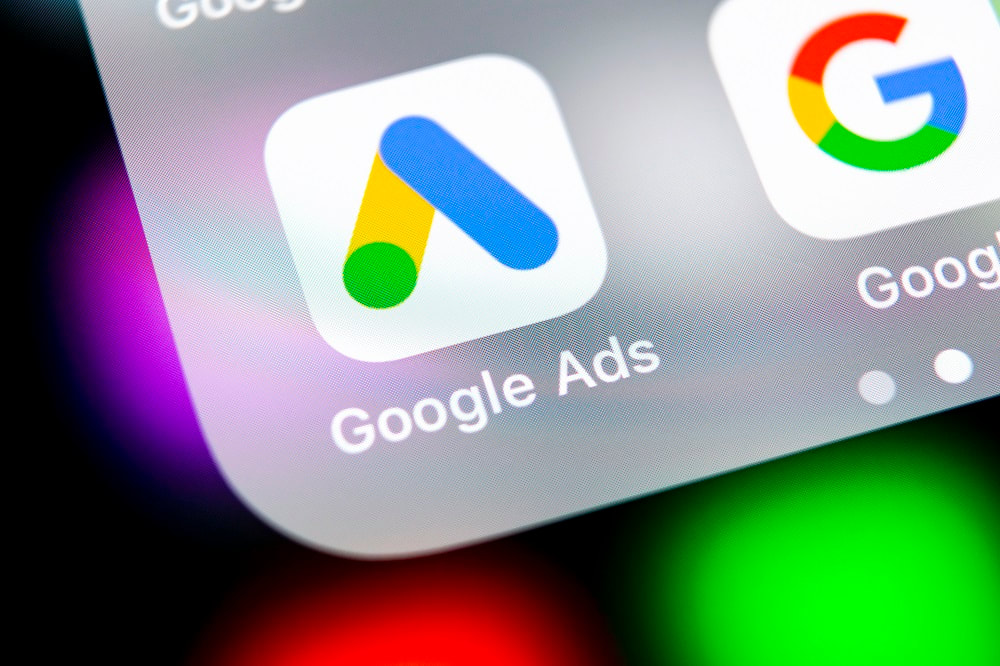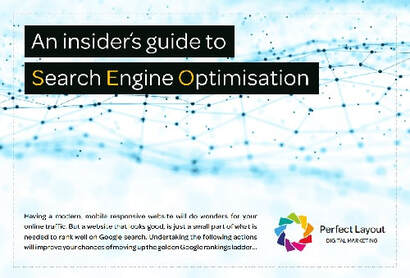|
If you don’t know how your website's performing, it’ll be very difficult for you to stay in the competitive online industry of today. If you’re a business owner or marketer, Google Analytics can offer you extensive insights into your online presence. While the platform may seem intimidating at first, it's pretty simple to grasp, especially when optimising your online strategy. Let’s walk you through the essentials of Google Analytics so that you can harness its full potential.
0 Comments
In the world of virtual presence, your website serves as your virtual shop. It makes a big first impression on prospective clients and should represent your business well. Working alongside your web designer is a must; whether you're creating a brand-new website or updating an old one. But where do you even start? Before beginning your website design project, here are some important things to consider.
The ever-evolving world of digital marketing knows only one constant: change. This makes it mandatory for businesses to deal with various challenges and opportunities. In this dynamic chessboard, every move counts, and the stakes are higher than ever. However, balancing the problems and potential shapes your business’ success. So, let's dive into the nitty-gritty to see how your company can up its game.
The internet world is fast-paced, with countless websites vying for attention. While numerous tactics can help your website grow, there's no denying that SEO (Search Engine Optimisation) is the ultimate power player. However, there are some essential do's and don'ts that can make or break your online presence. Let’s dive right into them!
In today's digital age, having a website is pivotal for businesses, organisations, and even individuals. It's your online presence, digital storefront and a means to connect with your audience. Because your audience can't meet you in person, it’s the way in which you make your first impression on them.
However, building a website is not as simple as it may seem. Numerous pitfalls can hinder your site's success. But the good news is: they’re all easily avoidable! So, let's explore some common errors you should steer clear of when creating a website. One of our objectives for 2023 has been to help raise funds and awareness for a local charity. Saint Francis Hospice – a local charity that cares for people in our community with palliative and end of life care - fell under our radar, mostly due to the wonderful Andy Furneaux and his amazing talent as a Fundraiser.
AI-powered marketing exploits artificial intelligence and machine learning for calibrated decisions. Data collection and analysis are the heart of AI marketing since they help anticipate customer and economic trends that will impact your digital campaign.
AI marketing is not a novel concept, with the first “smart” advertisement traced to M&C Saatchi for a fictional London coffee company back in 2015. But, of course, the technology and adoption have grown by leaps and bounds since then. Marketers have been talking about “content is king” since Bill Gates first coined the phrase in a 1996 essay when describing the future of the Internet. So now, 27 years later, does that statement still carry weight?
Content is a great equaliser when building a brand, establishing authority, connecting with an audience, and maintaining credibility. Use of this strategy, will allow you to grow your business and get ahead of your competitors. Why? Because people will read and share a compelling blog or video regardless of the messenger. Since its launch in China, TikTok has taken the social media world by storm. Its success now sees it hot on the heels behind Facebook, YouTube, and Instagram in the number of users. In addition, the platform has eclipsed Snapchat's 500 million accounts since hitting the one billion mark in 2021.
TikTok and Snapchat are ideal platforms for short videos and photos. The latter is a phone app that allows users to share videos or pictures (dubbed as snaps) with friends and acquaintances. But does TikTok and Snapchat provide the right environment for getting your business a new audience? A Citation refers to the digital reference that differentiates your business from the rest of the pack. It’s part of search engine indexing and traditionally includes what is referred to as the NAP (name, address, and phone number).
For example, when someone searches your company name on Google, the essential info shows up, and they can take the next step in the sales funnel. So, it’s critical that you only list accurate information to avoid frustrating your prospects. Interactive content may come in a variety of sources, including: surveys, quizzes, psychological assessments, raffles, giveaways, ebooks, animated infographics, general questions, and videos. The possibilities really are endless. These tools are a way of converting your target audience from passive readers into active participants.
Only a few methods can match the effectiveness of interactive content in establishing a connection between the brand and the target market. One of our objectives for 2023 has been to help raise funds and awareness for a local charity. Saint Francis Hospice – a local charity that cares for people in our community with palliative and end of life care - fell under our radar, mostly due to the wonderful Andy Furneaux and his amazing talent as a Fundraiser.
We love working with Mitchell’s Miracles! They have been our client since 2021 and we have had the pleasure of building them a brand new website as well as offering them ongoing maintenance. Based in Romford, this children’s charity, uniquely offers emotional and financial support to families across the UK, with children that have Neuroblastoma, a rare form of cancer. Founded in 2013, by Kristel Huth, their mission was, and continues to be two-fold; to raise much needed funds, as well as raising awareness about the disease across the UK. To show our support and admiration for the endeavours of this small team, we have sponsored their latest event – a family fun day with a Super Hero theme. Taking place on the grounds of Campion School, Wingletye Lane, Hornchurch, it promises to be an action packed day with live music, refreshments, stalls to peruse, rides, acts and lots, lots more. Doors open at 10am, with curtains down at 5pm. The weather promises to be a little cooler, which means that everyone will be able to enjoy the activities even more. So why not make time this Saturday 17 June and head along for some fun whilst also doing something wonderful for an awesome charity. Well, after what feels like a long month waiting for our new jump date to come around – we are proud to announce that our skydive for Saint Francis Hospice was successfully achieved yesterday – 11 June 2023. Christine and I have approached this day with nothing but excitement and relish at the thought of doing something amazing for an incredible charity and we were not disappointed.
Podcasting is the practice of recording an episode or series and then distributing it as an audio file using RSS feeds to the subscribers. These recordings may be uploaded or streamed to channels like Spotify, Google Podcasts, or directly on your website.
Today, there are more than four million registered podcasts worldwide, ranging from relationship advice, news, celebrity gossip, movies, legal, book reviews, finance, how-to's, and kids' topics. According to Statistica, the number of podcast listeners is expected to hit the 100 million mark by 2024. A massive thanks to everyone who has taken the time and effort to donate to our fundraising efforts so far! We're really feeling the love and are absolutely delighted to have surpassed our aim to raise £1,000. We're also really excited about having the opportunity to raise the profile of our Sky Dive by appearing in the Romford Recorder recently. If you're reading this for the first time, it's not too late to get involved and donate whatever you can spare by going to our Just Giving page. Google Ads help you create brand campaigns, which establish credibility and authority and in turn enhance online visibility. Your customers can connect with you in various ways, such as navigating your website, watching your videos, commenting on your blog, or communicating with your personnel.
It only seems like yesterday that we were talking to Andy Furneaux, from Saint Francis Hospice, about how we could help the hospice raise some much needed funds. With just under a month to go our excited anticipation of what's to come, gathers momentum. Whilst Christine is a veteran (she's sky dived once before whilst backpacking around New Zealand!) I'll be leaping for the first time. We're proud and honoured to be undertaking this fund raiser for Saint Francis and have so far raised a whooping £1,200! Help us to continue smashing our target by going to our Just Giving page today. You can also share news of this post by clicking on the buttons below. Following our recent tour around St Francis Hospice with Fundraiser, Andy Furneaux, we were struck by the awesome work and provision this organisation does for so many residents of Havering and the wider communities. None of us knows what tomorrow may bring and in the event that our health is compromised, being cared for by professional, passionate staff in a loving, clean, warm environment is something that should be available to all. Unfortunately, less than 30% of their funding comes from the NHS and Government combined and the remainder is made up from donations and fundraising activities. So today we’re announcing our intention to join the list of fundraisers, past and present and raise some much-needed funds for this amazing charity by jumping 10,000 feet out of a plane! We’ll be joined by the lovely Andy (pictured above) who has never jumped before and despite his terror, is ready and willing to give it a go! Help the Perfect Layout team raise £1,000 for Saint Francis Hospice!
Just over a year ago we did an Interview with… Saint Francis Hospice. One of their Fundraisers, Andy Furneaux, was kind enough to tell us about the amazing work the hospice does for thousands of people, year in, year out.
St Francis Hospice is well-known across Havering, beaming its brightly coloured orange and messages of hope, care and love in the community. Our health can be compromised at any time of life and the caring professionals of this hospice regularly look after people of all ages; whether that’s at some point of their illness or at their end of life. Many businesses have boomed since the evolution of the internet and with a growing number of internet users, many businesses are taking the opportunity to promote their business online through various marketing methods, including blogging.
Creating a website and building an online shop is not the sole source of bringing people to your business. Building an online presence through being active online or on social media is also not enough. However, by providing valuable content through blogging, the possibility of your website gaining more visitors can increase tremendously. So how does blogging benefit your business? If you own a business website, you might have stumbled upon search engine optimization (SEO) in your quest to market your business effectively. Four facets make up a successful strategy in SEO: content, keywords, meta tags, and backlinks. But what are backlinks and why are they important?
This month, our ‘Interview with...’ is with Peter Lynagh of ABLE Academy. Keep reading to find out how the Academy for Business Leaders and Entrepreneurs enables businesses from humble beginnings to attain substantial and consistent growth to enable a successful exit?
According to
|
Topics
All
|
Insider's guide to Search Engine Optimisation
Are you ready to improve your own website? Here's a front-page preview to our guide that can help. Complete the form and download your free copy!
Perfect Layout Digital Marketing
|
HoursM-F: 9am - 5pm
|
Telephone |
|
Copyright © 2021. All rights reserved. Blog policy. Privacy Policy. Photography by Picture Partnership






























